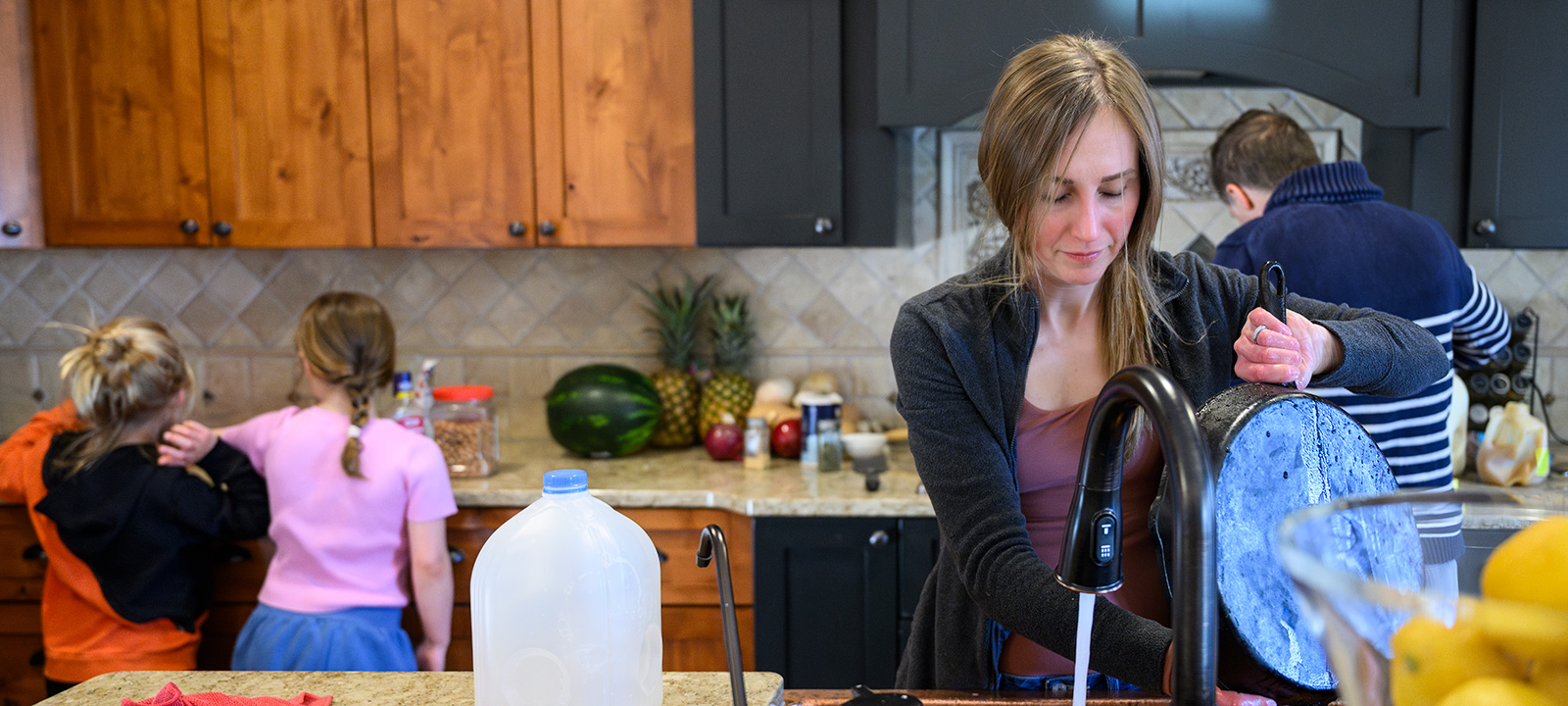
The Supermom Myth
UW professor Jessica Calarco argues for strengthening the social safety net to give stressed-out caregivers a break.
Jessica Calarco is a superstar in UW–Madison’s galaxy of bright minds. The sociology professor has won numerous awards for her research, which investigates the forces that shape education and parenting. She has written four books, including Holding It Together: How Women Became America’s Safety Net, which anchored National Public Radio’s 2024 “Books We Love” list. And she went viral with a comment from a 2020 interview with journalist Anne Helen Petersen: “Other countries have social safety nets; the U.S. has women.”
At Calarco’s core is her family life. She parents two young children with her husband, Universities of Wisconsin deputy CIO Dan Calarco. Kids’ drawings and family-trip photos are the red thread of her social media narrative, lending lived experience to bold statements about social policies that affect American families. She’s clearly a super mom, but she has no patience for the supermom myth, the notion that mothers are the only people who can protect children from harm. Myths like this “divide us and delude us into thinking we don’t need a social safety net,” she says. “Families can keep their kids safer from the real threats if they have a sturdy net for support.”
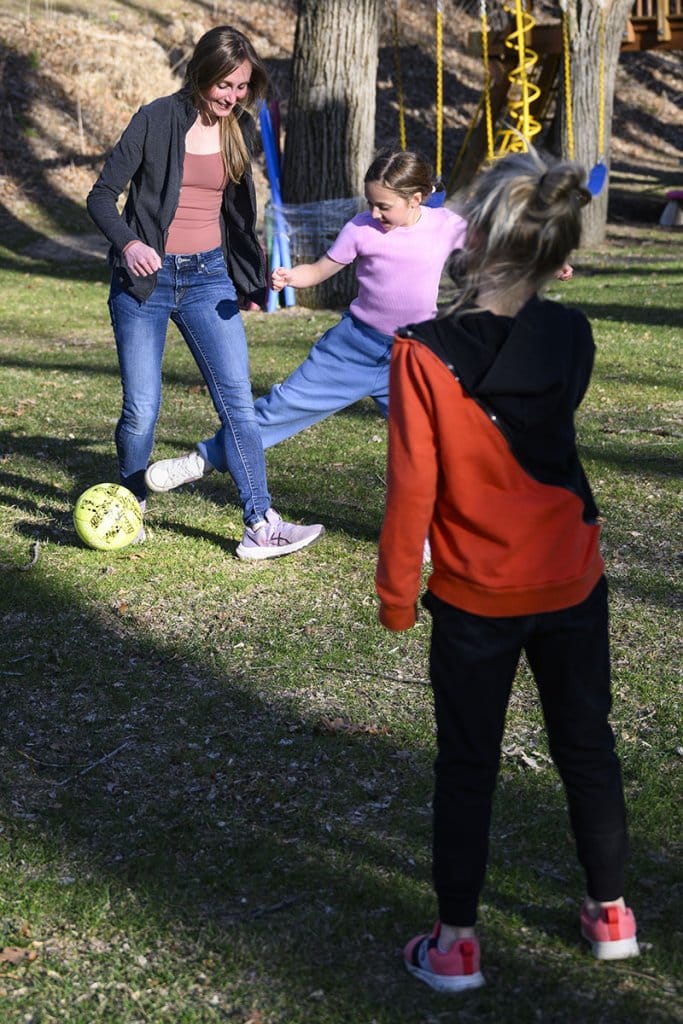
At Calarco’s core is her family life.
Calarco’s true superpower is “sociological imagination,” discerning how individual circumstances reflect a society’s systems and structures. The late sociologist C. Wright Mills PhD’42 coined the term, and Calarco actualizes the concept through her studies. Holding It Together distills five years of original research, including 4,000 parent surveys and more than 400 hours of interviews with women who kept their families and communities afloat during the COVID-19 pandemic.
As Calarco explains in the book, women did the lion’s share of this work — and continue to do it — because the country’s threadbare social safety net couldn’t handle the job. In the process, they take on a level of risk that would give most actuaries nightmares.
“Women shouldn’t have to be doing so much for so little,” Calarco says. They do it because we live in what she calls a “DIY society,” a place where men are incentivized to push care work onto women so they can focus on doing paid work that is valued more. She argues that this is “drowning women and leaving our whole society sicker, sadder, and more stressed.”
“I Needed to Tell This Story”
Calarco didn’t set out to write Holding It Together. The project started as an academic study about parenting choices.
“I wanted to see how parents navigate decision-making around screen time, co-sleeping, discipline, and other potentially fraught topics, and how advice and pressure from others play a role,” Calarco explains. “For example, if a mom wants to go back to work but can’t get childcare, how does she decide what to do next?”
Calarco experienced this situation herself. Full-time childcare was unavailable for more than a year after her daughter was born. She rarely slept since the baby rarely slept. Her husband had a new job, so he couldn’t take much time off. No family members lived nearby. Plus, she had a book deadline looming and a new class to prepare as a professor at Indiana University, where she faced more deadlines related to the tenure process.
“My first year of motherhood almost broke me,” Calarco says. “Nobody is set up to succeed in this system we’re living in.”
When Calarco was ready to helm a new study, she and a team of students recruited 250 subjects from Indiana prenatal clinics. After administering an in-depth survey, the team began interviewing participants. Then COVID hit. The stressors crushing families became painfully apparent.
“Women were taking on a vastly disproportionate share of the work,” Calarco says. “They were making sure a neighbor had meals to eat. They were making sure people had somewhere to stay if an eldercare facility shut down. They were getting their parents to take their medication. And in many cases, no one was taking care of them.”
“Other countries have social safety nets; the U.S. has women.”
— Jessica Calarco
Questions about these care-related choices were added to the data-collection process. And then came Calarco’s 2020 soundbite, which was quoted in the New York Times and graced dozens of policy reports: “Other countries have social safety nets; the U.S. has women.” One day, a book editor called and asked Calarco to turn these 10 resonant words into a manuscript for general readers.
“I was like, ‘I have this other book that’s overdue and two little kids at home,’ ” Calarco says. “But she convinced me that I needed to tell this story.”
“I Was a Nerdy Kid”
Calarco received early admission to the world of caregiving. She watched her mom work as a childcare provider, earn a bachelor’s degree in elementary education, and start her first teaching job. Along the way, Calarco helped care for her two younger siblings by retrieving them from the school bus and helping them with their homework. When her mom wasn’t working, Calarco would lobby for a ride to the library.
“I was a nerdy kid, always begging my mom to take me to the library to check out more books,” she says. “As I got older, I also got very interested in research, politics, and policy.”
In high school, Calarco served as the first student representative on her local school board in the Philadelphia area. After the state legislature proposed adding seals to the diplomas of students with above-average state assessment scores, she gathered data from conversations with other students — who, by and large, considered the plan counterproductive and elitist — and shared a presentation based on her findings. She then argued against the policy at a hearing at the state capitol.
“Ultimately, the policy didn’t pass,” she says. “That was a window for me into the role that research could play in helping to shape policy, and it ultimately led me to pursue undergraduate degrees in sociology and education.”
Calarco earned these degrees at Brown, then completed a sociology doctorate at Penn. At first, she thought she’d major in English and go to law school, but two freshman-year sociology courses piqued her interest in that discipline. Later she assisted a professor with a book manuscript on the federal government’s role in education. In the process, she learned even more about the research paths she could pursue.
“I got to help with research he was conducting in the National Archives,” she explains. “He encouraged me to consider graduate school and a career in academia, and his mentoring helped me see it as a possibility.”
Calarco had found her true path, and her archival expertise set the stage for her brilliant breakthrough with Holding It Together.
Never-Ending Messes
Calarco, who came to the UW in 2023, knew she’d need to give her data lots of context when writing for an audience outside academia. She analyzed news reports and historical documents, hoping to learn why many Americans eschew policies that have strengthened other countries’ families and economies. These include free and universal preschool, health care for all, and generous leave policies for employees providing care to vulnerable relatives: new babies, elderly parents, or disabled siblings, for example.
This year, Calarco is a fellow at the Roosevelt Institute’s democracy-focused think tank, which is affiliated with the Franklin D. Roosevelt Presidential Library and Museum. Hannah Groch-Begley, the think tank’s director, says Calarco is shaping public discourse about democratizing the American economy.
“Through her research, she highlights the real-life experiences of families navigating structural inequalities — insights that policy-makers too often overlook,” Groch-Begley says. She believes that Calarco’s emphasis on “trust in public institutions” strengthens the case for policy solutions that can create a fairer future.
In Holding It Together, Calarco also reflects on her personal history. When sharing her subjects’ stories of dashed dreams and financial precariousness, she often thought of her mother, who put college on hold to raise her.
“My mom spent years figuring out how to finish college after that,” she says, noting that her mother originally set out to become a child psychologist. “A lack of affordable childcare made it very difficult. For a while, my mom stayed home with me during the day and worked at night, when my dad was home. That was hard on our family.”
As the family grew, Calarco’s mother started an in-home day care. Childcare work was her best option for making ends meet, as it is for many of the women in Holding It Together. Calarco watched her mom navigate never-ending messes of snacks, toys, and unexpected challenges.
“There were lots of hidden costs, the pay was low, and the stress was high,” Calarco says.
The division of labor in Calarco’s own household helped her carve out the time she needed to write Holding It Together. Her husband assumed many of the tasks that people associate with motherhood. In the book, she thanks him for being “our kid activity coordinator, our travel planner, our kin-keeper, and our holiday magic-maker.” On Bluesky and X, she shows off his sewing projects, which include homemade outfits for the kids, and praises his mother for teaching him this skill.
Calarco also implores parents to nurture their sons’ caregiving impulses.
“We desperately need more men in caregiving roles,” she told her Bluesky followers recently. “To get there, we have to start early, encouraging boys to fill caregiving roles that too often default to girls.”
Calarco knows this opinion is not universally shared, and she also knows that Holding It Together has the potential to make people angry.
When Furious, Get Curious
Many women tell Calarco that they’ve avoided the book because they’re not ready to get mad. She urges them to read it anyway.
“The truth will set you free, but first it will piss you off,” Calarco says, quoting feminist Gloria Steinem. “The work that’s needed to change the situation requires that we get angry, but women are socialized to hold in their anger rather than push back against systems that are failing them.”
Calarco is skilled at writing posts that strike a nerve on social media and in her Substack newsletter, The Hidden Curriculum. And she does it with a goal in mind. She wants her followers to cultivate courage, curiosity, and their own sociological imaginations. Along the way, she shows them how to find glimmers of joy in outrage.
This theme gets woven into posts about her crafting hobby. In February 2024, Calarco posted a photo of one of her embroidery projects on X. Instead of making a “home sweet home” wall hanging, she turned the fabric into a new platform for her famous statement about American women and social safety nets.
“Working on this made me think of the weekends I used to spend crafting with my grandmother as a kid,” Calarco commented. “She taught me to love to create (and to weave a little subversion in).”
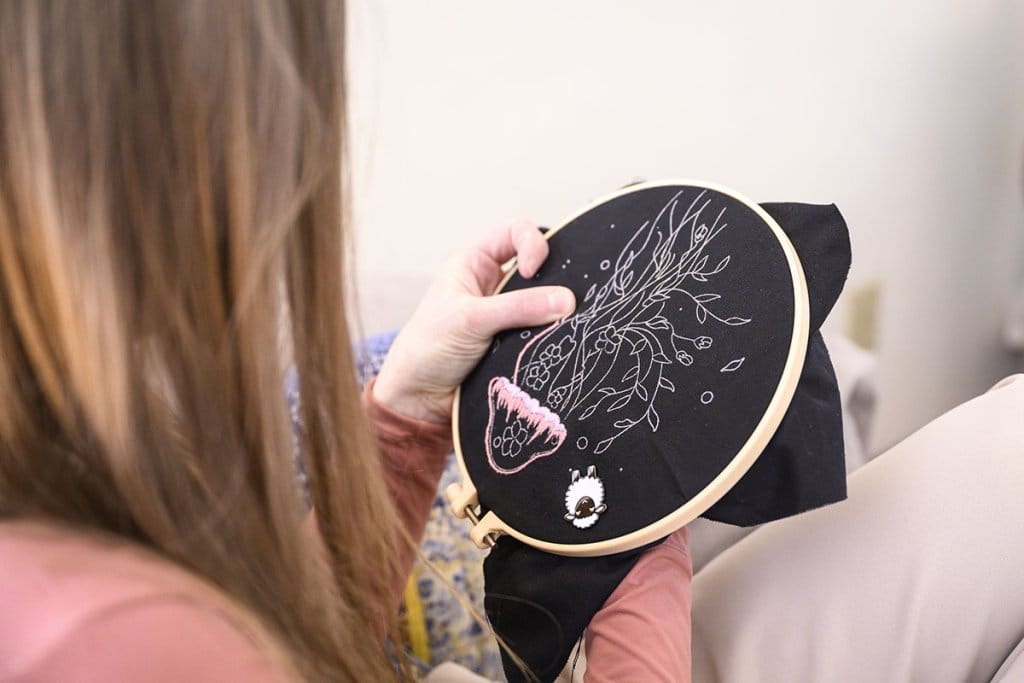
Calarco finds glimmers of joy in her crafting hobby.
Calarco channels her rage into other hobbies as well. Sometimes it fuels one of her daily runs on the Military Ridge Trail. Other times she redirects it into making Friday-night pizza for her family or cookies for her students and colleagues. When tempered with love and care, it’s not toxic. It’s sustenance.
Rage is so useful that Calarco, someone who recoils at the idea of New Year’s resolutions, has resolved to embrace it in 2025. She shared this with her newsletter readers, who will surely hold her accountable. Calarco knows she’s doing rage right when it inspires bravery and reflects integrity.
As she told her followers on Bluesky: “Embrace anger for clear-eyed courage. Embrace hope for a reason to fight. And embrace joy to get through each day.” •
Jessica Steinhoff ’01 is always lobbying for a trip to the library.
Published in the Summer 2025 issue
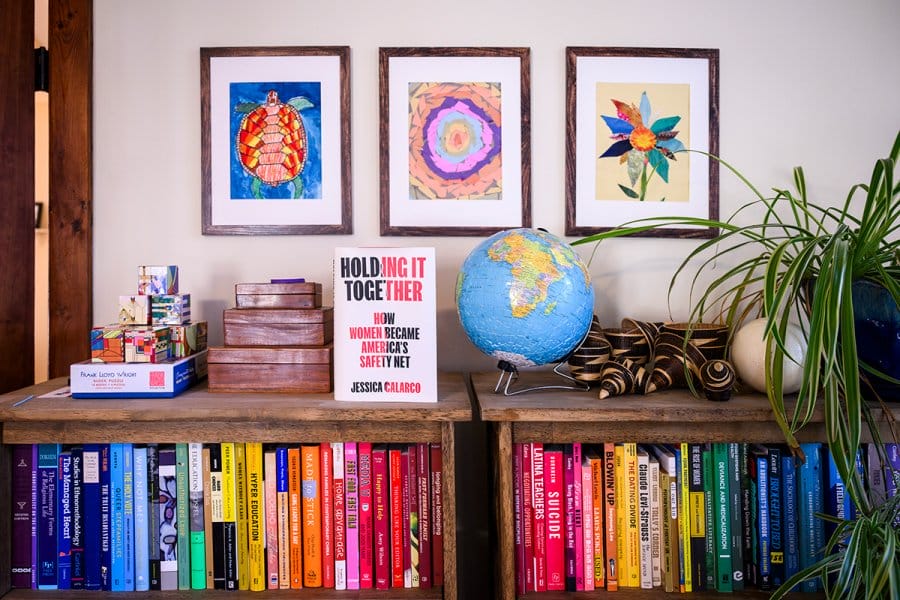


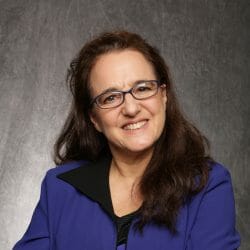
Comments
No comments posted yet.